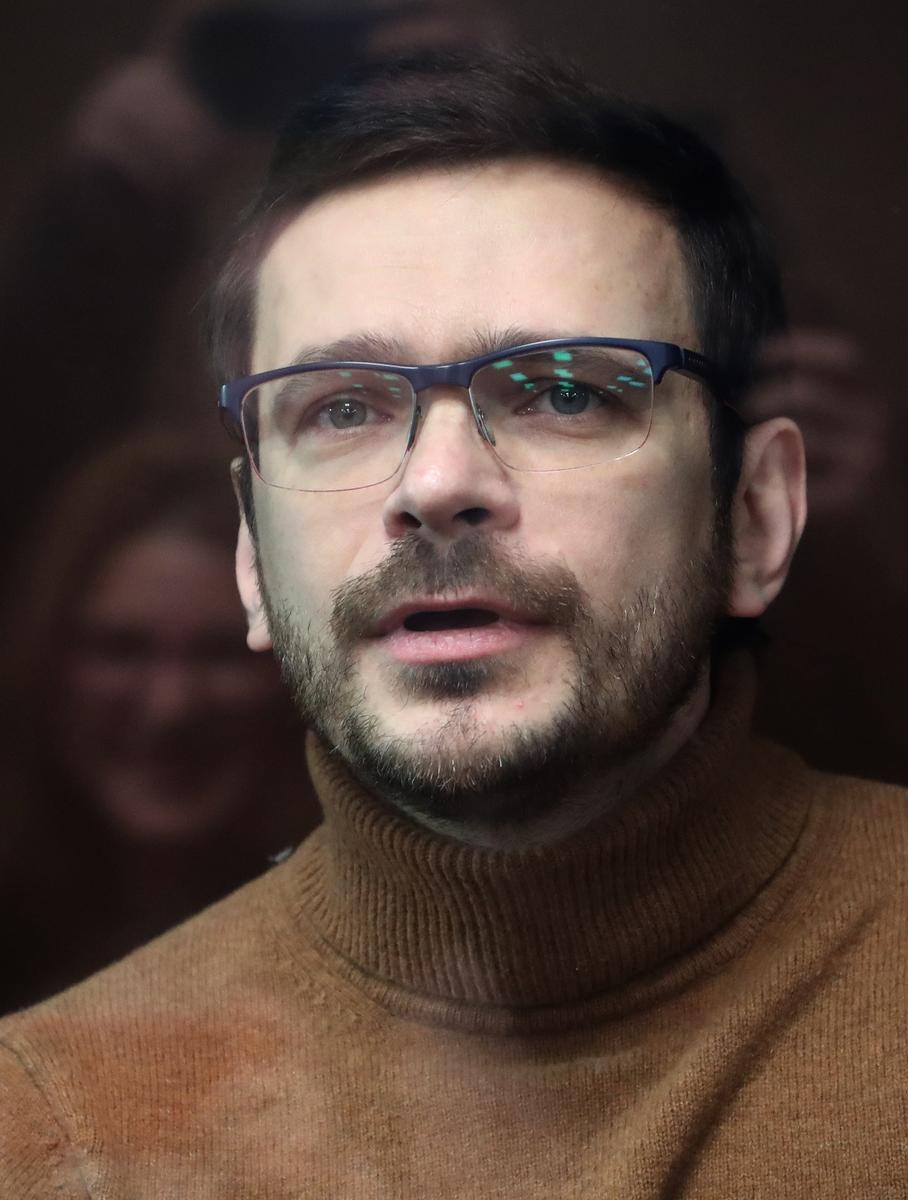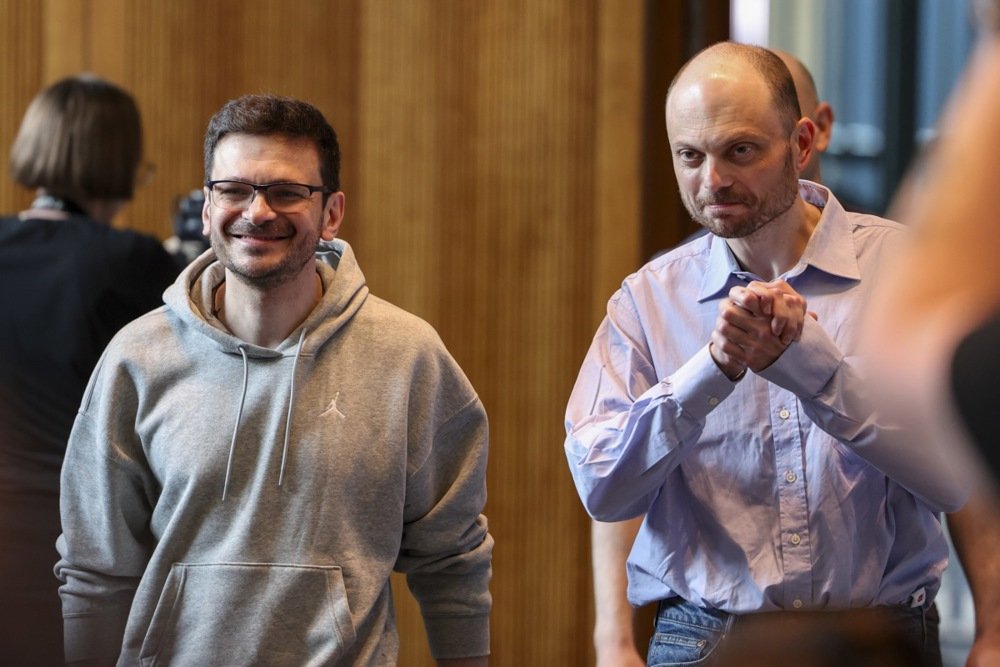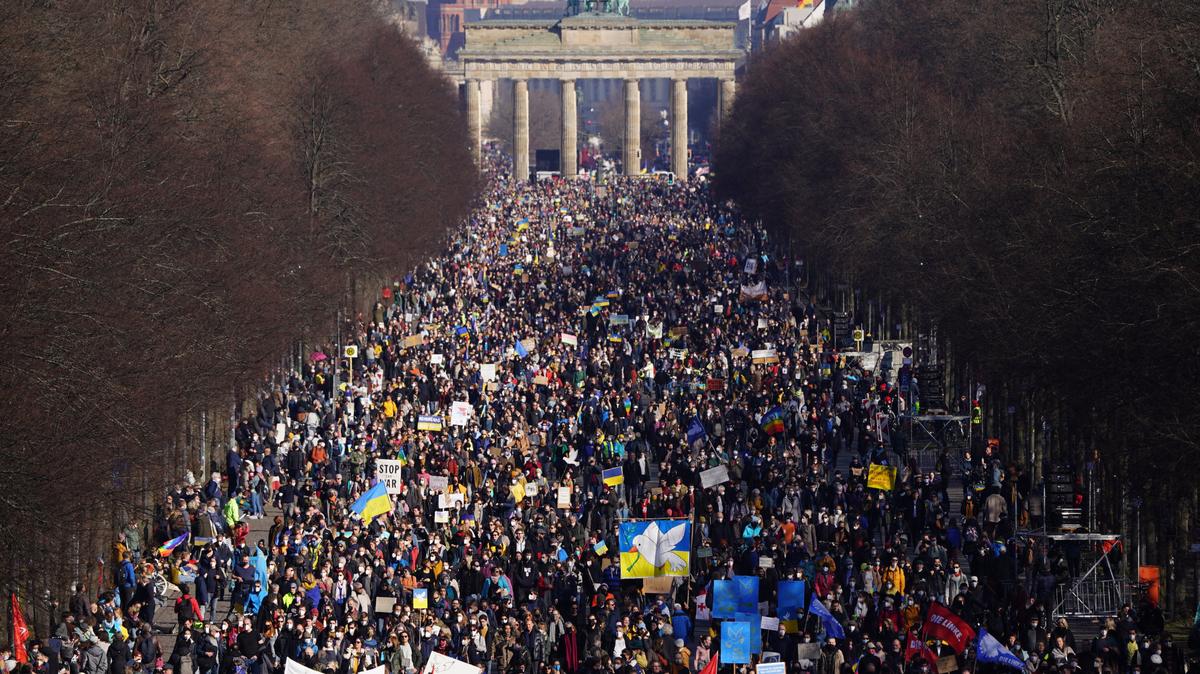Exiled Russian opposition politicians Ilya Yashin, Yulia Navalnaya and Vladimir Kara-Murza joined forces last month to announce that a giant anti-war march would be held in Berlin this Sunday, starting at 1pm on Potsdamer Platz and ending outside the Russian Embassy on Unter den Linden.
The march, the demands of which include a full Russian withdrawal from Ukraine, the release of all political prisoners and Vladimir Putin’s delivery to The Hague, is an attempt to unite Russia’s increasingly fractured opposition in exile, which has recently been beset by greater in-fighting than usual.
Novaya Europe asked Ilya Yashin how he responded to those expressing their scepticism of what Sunday’s rally can actually achieve, and what he’d say to those wondering whether or not to attend themselves.

Ilya Yashin. Photo: EPA
“I think the main thing stopping people is apathy and the belief that nothing will change. I understand that all too well. I see the apathy and can sometimes feel it trying to work its way into me too. But despair is a mortal sin and you need to rid yourself of it.
I wrote about that a lot in the letters I sent people from prison. I said the most important thing was to stay optimistic and dispel despair. Despondent people won’t stop the war. Despondent people won’t build a happy country. And no matter how hard, difficult or depressing it is, you have to find the strength to stand up to evil and do something.
People should come out and demonstrate because the war has been going on for almost three years, Putin has been in power for 25, and Russia still has a huge number of political prisoners. We need to unite if we want to start tackling all these problems, and we need to build political momentum and use it for good.
Yes, in many ways, the rally will be a symbolic one. But we have no choice but to believe in ourselves and show our strength.
If we want to be a force to be reckoned with, we can’t just sit around at home. We need to get out there, unite, negotiate and focus on issues that concern us all if we want to be a fully-fledged political anti-war movement.
There’s a lot going on beyond spats on Twitter. Beauty is in the eye of the beholder. This event is being organised by three very disparate independent politicians. Yulia Navalnaya, Vladimir Kara-Murza and I are very different people with different life experiences. Our tactics differ in many ways. But we were able to come to an agreement and to identify a set of shared beliefs that would allow this event to bring the opposition closer together.

Russian opposition politicians Ilya Yashin and Vladimir Kara-Murza in Bonn, Germany, following their release and exchange on 2 August 2024. Photo: EPA-EFE/CHRISTOPHER NEUNDORF
There are a lot of people in Russia who think like us and who have the same dream as us — a free, peaceful, civilised Russia. These people have no voice, no vote, and cannot even say what they think in private conversation, as you can now go to prison just for that. In prison I met many people who were there for precisely that reason, including one guy in the cell next to mine who had been imprisoned for something he said on the telephone. For people like him, holding this march amounts to an important display of solidarity, somewhere we are able to say what they think and how they feel.
This is an act of solidarity with all political prisoners in Russia. When it happens, hundreds of thousands of letters will be sent to Russian prisons. Volunteers will tell political prisoners that the event is happening, that they’re raising awareness about them, showing pictures of them, and that the opposition is coming together. I can say from experience that that’s exactly what I wanted to hear when I was in prison.
The war won’t end by itself, and so sitting around waiting for it to do so is not an option. Instead, you must spare no effort to effect that change yourself.
Yes, in many ways, the rally will be a symbolic one. But we have no choice but to believe in ourselves and show our strength, because, as things stand, nobody — ourselves included — believes that we are a force to be reckoned with. We need to be strong if we want to move forward.
Hundreds of people now come out to see me at the appearances I make in cities all over Europe, allowing me the opportunity to sense their mood. I see the enthusiasm that results from swapping online debates for real-life meetings and rallies where you’re surrounded by other decent people in a positive atmosphere. This is how to regain the desire to bring about change.
The war won’t end by itself, and so sitting around waiting for it to do so is not an option. Instead, you must spare no effort to effect that change yourself. You have to pull yourself together, step up, and do something every day, whether it be protesting, posting on social media or trying to talk somebody around to your way of thinking. We all have a duty to do this for the common good. This is no time for despair — let’s move things forward.”

